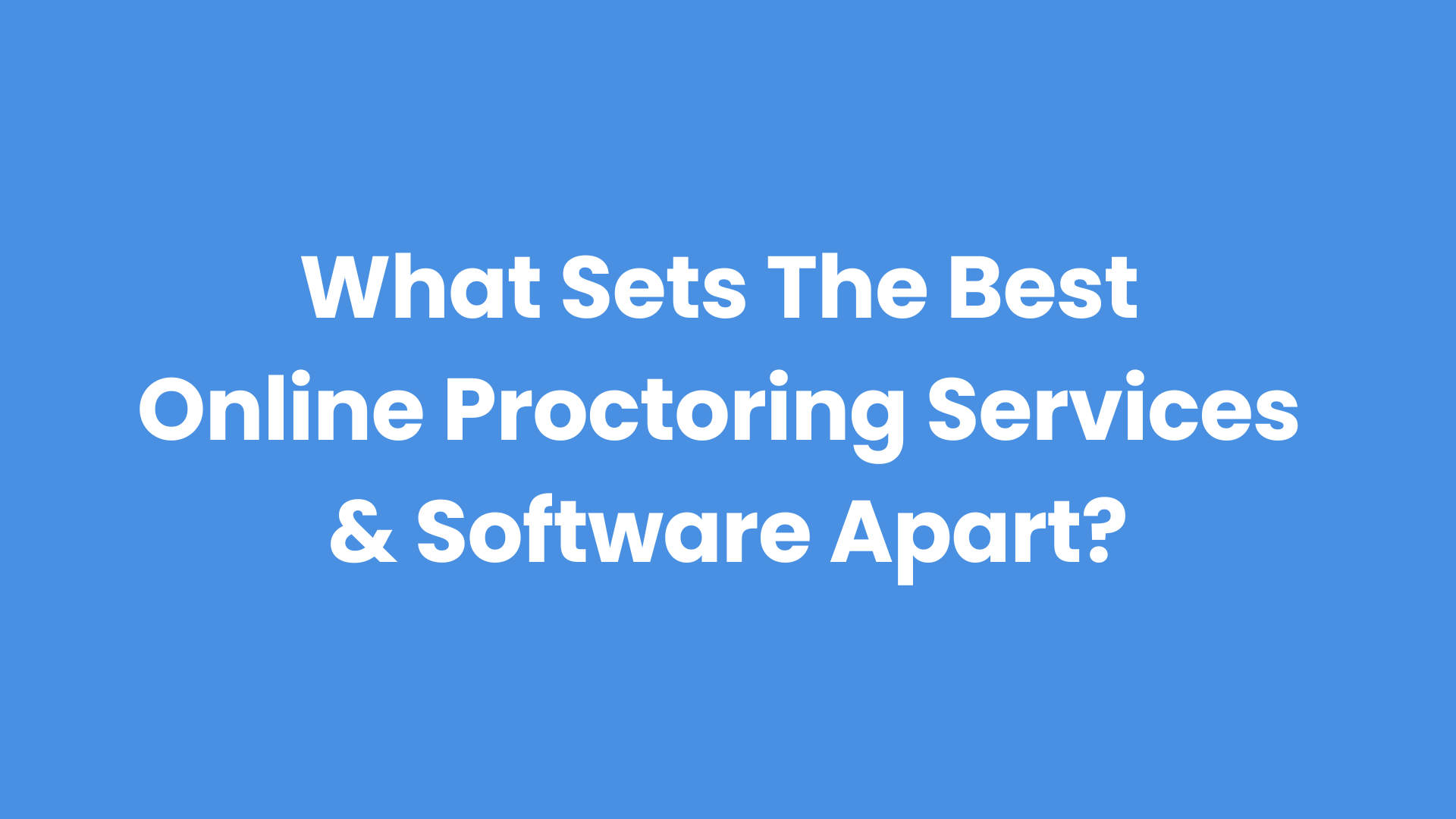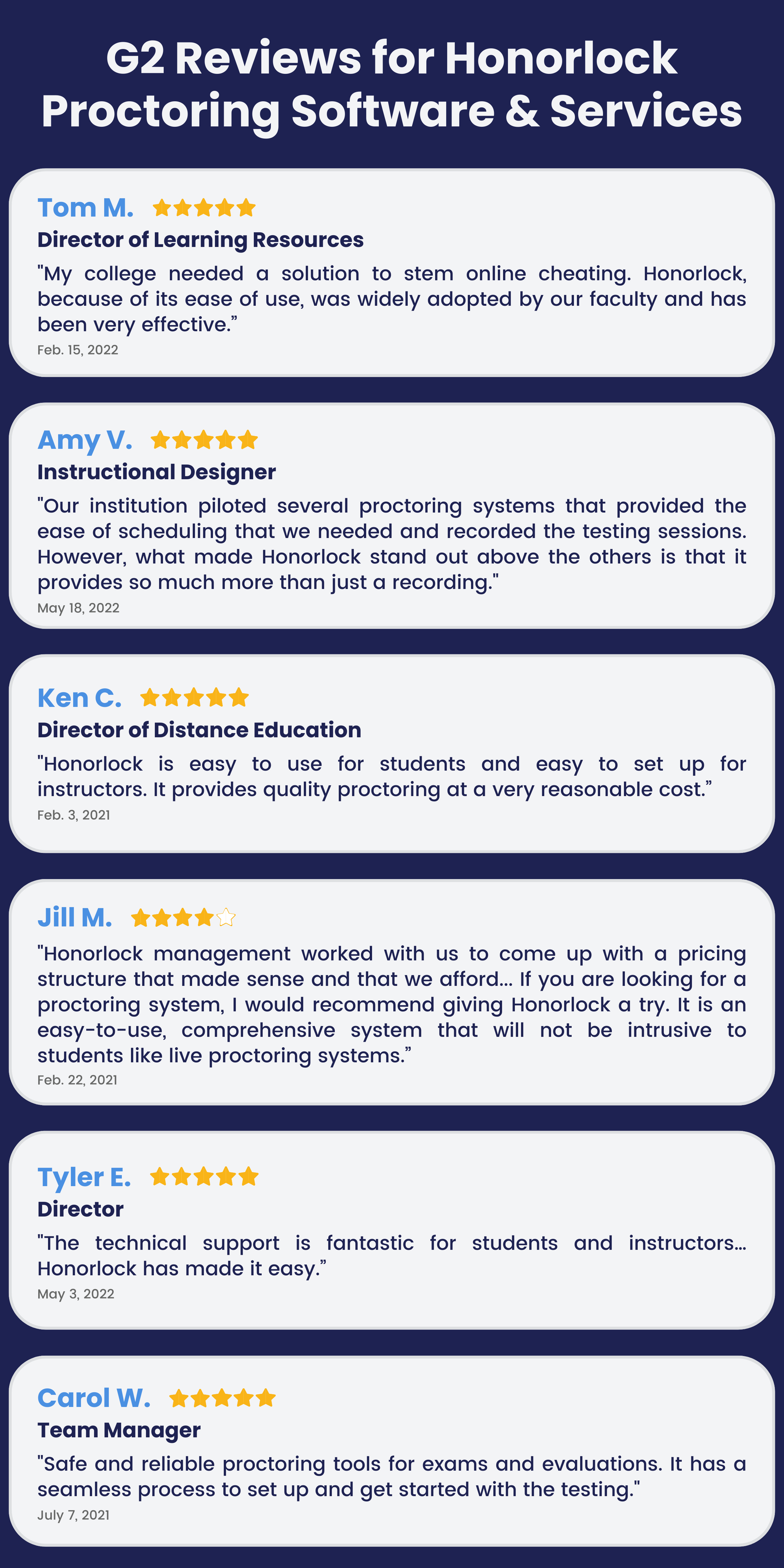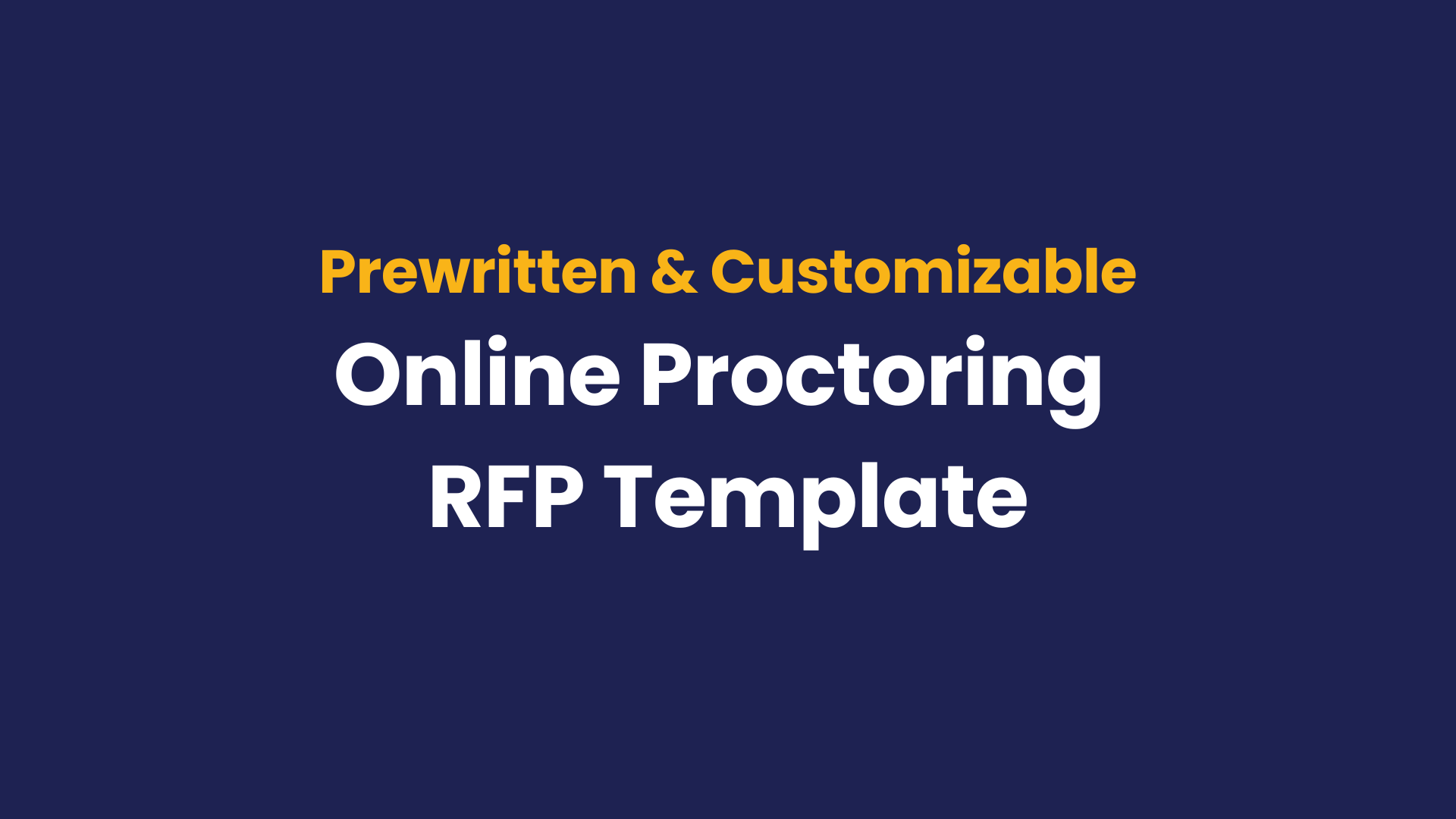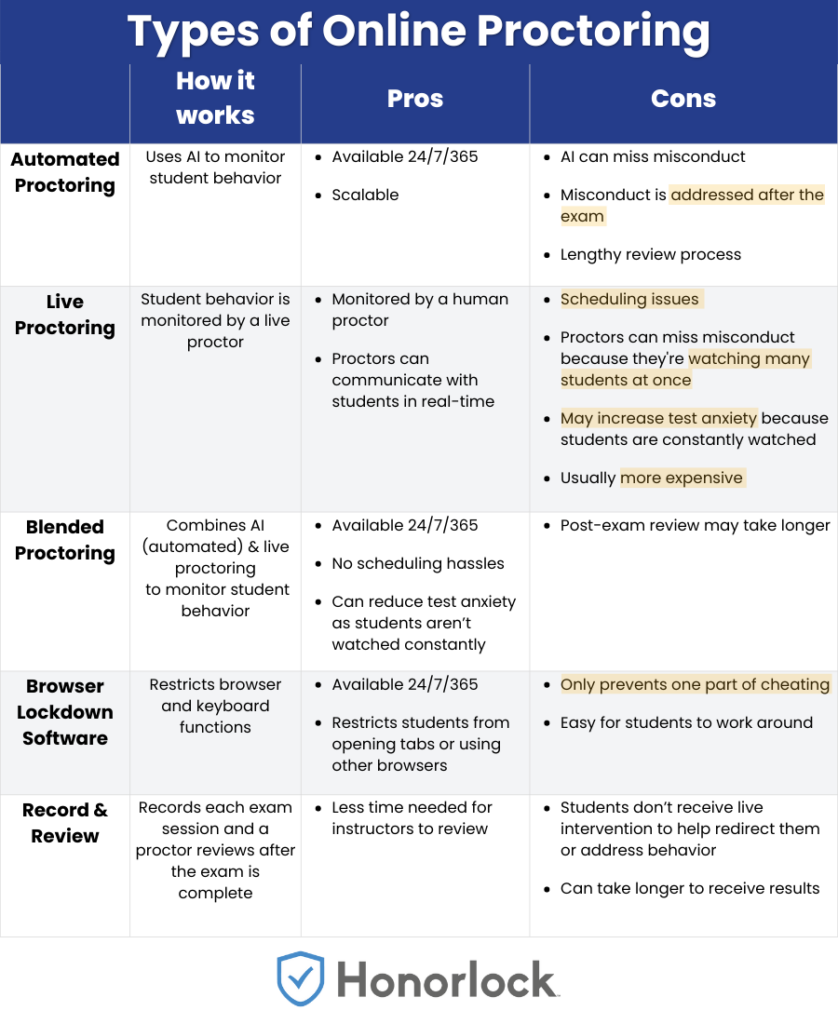If you aren’t using online proctoring (or just not using the right kind), you may be giving an unfair advantage to some test-takers and missing out on opportunities to test knowledge in nontraditional formats – even in a remote environment.
While most approach their online exams with integrity, some take advantage of unauthorized resources that are available in a remote testing environment, gaining an unfair advantage over others – maybe even unknowingly or innocently.
These unauthorized resources can include things like: notes and textbooks, or using cell phones and searching the internet during exams, which puts the academic integrity of your online exams at risk.
- Do not use any online proctoring services or services
- Only use browser lockdown software
- Only use automated proctoring software (no human proctors) or live proctoring services (one proctor watching multiple test-takers at once)
How would you know if a test taker uses a cell phone to look up answers?
Without online proctoring software, test takers can use cell phones and other devices to look up answers during the test.
Browser lockdown software can’t detect cell phones, and some remote proctoring companies rely on live proctors seeing the cell phone to “detect” it.
Does it really work? Eh, not always.It’s pretty easy for a proctor to miss the cell phone because they may be watching a dozen test takers at once and the phone may be used out of view of the webcam.
Can proctored exams detect phones?
Unless you want to rely on a busy proctor seeing a phone, consider using Honorlock’s online proctoring platform to detect cell phone use.
How does Honorlock detect phones?
Honorlock’s online proctoring software can detect when test takers attempt to use cell phones or other devices to access test bank content during the test. If it detects cell phone use, it alerts a test proctor to enter the test session and address the situation. It also flags the behavior for the instructor to review in a report after the proctored exam. See how Honorlock can detect cell phones
How would you know the person taking the test is the same person getting credit for the class?
If you can’t verify the test-taker’s identity, you may be giving credit where credit is not due. Without proctoring tools for online exams, your options are limited.
- The good news: most online proctor companies offer ways to authenticate ID.
- The bad news: it can be a complicated, time-consuming process that may put your data at risk.
Be sure that the online proctor companies you evaluate offer a quick, easy, and secure way to authenticate ID.
How does Honorlock’s proctoring platform authenticate ID?
In about a minute, the online proctoring platform captures a picture of the test-taker along with their photo ID to authenticate identity.
That covers the quick and easy parts, but what about security?
From our technology for remote proctoring to ongoing employee training, Honorlock takes a security-first approach in everything we do, including ID authentication. Our remote proctoring software does not use face recognition or other biometric technologies (e.g., fingerprints or voiceprints) to identify test takers, and it doesn’t identify individual faces, store facial elements, or match faces to a database. Learn about ID authentication with Honorlock
Are any of your test questions leaked online?
Have you ever found your test questions leaked on the internet? It’s pretty annoying, right? Online forums (e.g., Reddit & Quora) and homework help sites (e.g., Chegg & Quizlet) have made it all too easy to find and share your test content.
You have three options to find your leaked test content:
- Copying and pasting each question into the search engine, one-by-one, and reviewing tons of results
- Manually selecting each question you want the proctoring software to search for
- Automatically searching the internet for all of your leaked questions in a few minutes
The proctoring technology that automatically searches for your content uses Search & DestroyTM. It identifies where your content is leaked and provides a one-click option to send content takedown request.
What if you could remotely proctor hands-on assessments and other tasks in an online environment?
Whether traditional questions (multiple-choice, etc.) or non-traditional formats (see below), Honorlock helps you customize the proctoring tools and settings needed to protect nearly any assessment activity.
Non-traditional exam activities that can be remotely proctored:
- Open-book questions: Test takers have access to specific physical resources (e.g., textbooks) and/or digital resources (e.g., online research journals) during the exam, while all other resources are prohibited.
- Handwritten math problems & essays: Test takers complete handwritten math problems and essay responses using pen and paper. This also works for typed essays to prevent chatbots and other AI from being used.
- Using software to complete tasks: Software like Microsoft Excel and Quickbooks can be used to complete real-world tasks during online exams.
- Online presentations & demonstrations: Using the webcam to conduct presentations and demonstrations in a remote environment.
- Technical interviews: Blocks AI interview assistants, which use invisible chatbot-like overlays to feed participants interview responses and even writes code to use in a development environment.
What if you could reduce test anxiety with remote proctoring software?
Test anxiety is common, especially in online environments, and it’s a common reason why students cheat.
A university survey showed that 64% of test takers agreed that “taking an online test makes me nervous.” But the good news is that the same survey showed that Honorlock’s blended proctoring solution, which combines AI and human review, reduced test anxiety.
Test anxiety survey results summary after taking online proctored exams using Honorlock:
- 6% decrease in test anxiety between their first & second proctored exams
- 15% decrease in anxiety associated with the statement, “Thoughts about the proctor interfered with my concentration.”
- 100% felt less anxious after interacting with an Honorlock proctor
Benefits of proctoring for different industries and exam formats
The right type of proctoring can be used in higher education and professional education. It’s flexible enough to work for different kinds of exams and assignments from whether they’re taken online or in person.
Higher education
Proctoring is widely used in higher ed for any exams and assignments. This includes online exams using traditional question formats (e.g., multiple choice, true or false, etc.), hands-on authentic assessments, and even written assignments (typed or handwritten), and for tests taken at campus testing centers.
Professional education
Organizations of all shapes and sizes use online proctoring to secure certification exams, tests during employee training and development, pre-employment assessments, and even job interviews. Proctoring can help organizations prevent cheating while protecting their content and intellectual property from being shared on the internet.







